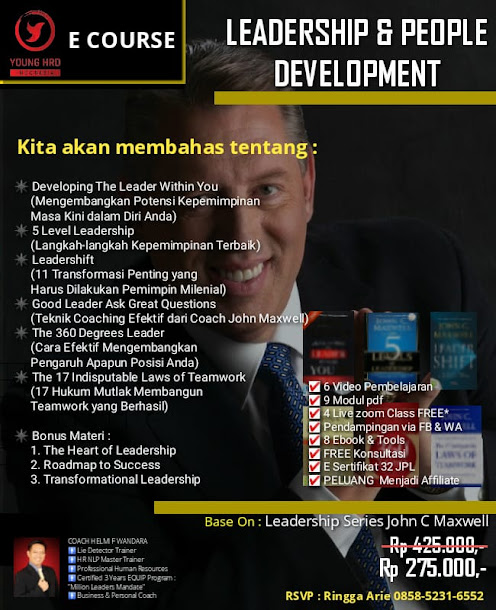Nobody is born a perfect leader.
Like any skill, the ability to lead successfully has to be developed and nurtured. First-time managers, especially those with little or no training, may find it counterintuitive that the “script” they’ve relied upon until now — “My skills, my talents, and my technical knowledge have led to my success” — is no longer their ticket to success as new leaders.
In fact, sticking to the same script will actually make them less effective in their new roles.
Our research has found that effective new leaders actually talk to themselves differently than less effective ones, using second-person pronouns (like you and your) instead of first-person pronouns (like I, me, and my).
A natural, but less effective, script might be, “I’ve never been a manager before. How can I possibly do this?”
But a more constructive inner dialogue for a new manager is, “You have the ability to learn about leading others. You can be a great boss.”
New leaders must “flip their script” in the way they think and act in 6 key areas:
New leaders must “flip their script” in the way they think and act in 6 key areas:
- Mindset
- Skillset
- Relationships
- Work Attitude
- Perspective
- Integrity
1. Mindset: Start Learning Like a Leader.
As explained in the book Be the Boss Everyone Wants to Work For, successful first-time managers are able to flip their mindset from “being a great individual contributor” to “being a team leader who motivates others to succeed.”
Such leaders tend to have a more open approach to learning than those stuck in the individual contributor mindset. Their motivation to learn comes from a belief that learning is fun, exciting, and engaging, and that far outweighs a motivation of rewards, recognition, and impressing others.
2. Skillset: Build Skills for Team Success.
Effective leaders work on their skillset for team leadership:
- Communicate with others the way they want to be communicated with.
- Influence others to move work forward and gain support for their decisions.
- Build and lead teams successfully.
- Develop others’ skills by assigning them challenging tasks and providing ongoing feedback.
Our research found that leaders who relied solely on the technical expertise that landed them their promotion were rated as less successful in their new leadership role.
3. Relationships: Make the Switch from BFF to Boss.
Successful first-time managers know moving from “best friend” to boss can be tricky; former coworkers and friends will view them differently once they are in a leadership position. They accept their new role and shift their relationships by:
- Set clear expectations for friends and former coworkers.
- Treat team members fairly, but not equally, giving bonuses and raises are based on merit, not favoritism.
- Build high-quality relationships with their subordinates, even those they don’t “click” with.
- Improve team cohesion by making roles and responsibilities clear and keeping track of each member’s progress.
Ineffective leaders have trouble making the switch from peer to boss because they haven’t flipped their script from focusing on personal relationships to focusing on the relationship they have with their team.
4. Work Attitude: Delegate — Don’t Do It All.
Productive leaders drive team results by delegating tasks. They set goals for their team members, and they give positive and negative feedback to help them develop.
“Do it all” bosses who haven’t flipped their script still define themselves by the amount of work they alone do.
By not delegating, they convey the message that they don’t trust their team to do a good job. Team members stagnate, productivity slows, and the organization suffers.
5. Perspective: See the Bigger Picture.
New leaders face an abrupt change of perspectivefrom “outsider” to “insider” when it comes to company politics. First-time managers who accept politics as a necessary part of the bigger picture of leadership tend to be more productive and satisfied with their jobs.
They work with the system by:
- Gathering information about the thoughts, behaviors, and needs of coworkers and stakeholders.
- Observing what is appropriate behavior for each situation and acting on it.
- Connecting genuinely with a diverse group of people to gain new information and build support for their team’s — and stakeholders’ — goals.
New leaders who don’t expand their perspectives will likely view politics as a chore and won’t garner any of the benefits.
6. Integrity: Focus on What’s Right, Not What’s Easy.
With leadership comes responsibility — to act always based on what’s right, rather than what’s easy or self-serving. Strong leaders have flipped their focus from themselves to how their actions could affect their team, the organization, and everyone involved.
Developing integrity takes time and practice. We recommend:
- Consider carefully: When making important decisions, ask, “What would Mom (or other important figures in your life) think about this?”
- Be honest about what you can and can’t do — and when you can deliver.
- Don’t let anything cloud your judgement: Not a relationship, time pressure, or monetary rewards. Take yourself out of the equation to fully understand the consequences of any decision.
New leaders who focus on integrity build trusting relationships with their team and are more likely to enjoy long-term success in their new roles.
Source : https://www.ccl.org/articles/leading-effectively-articles/6-ways-leader-everyone-wants-work/




















